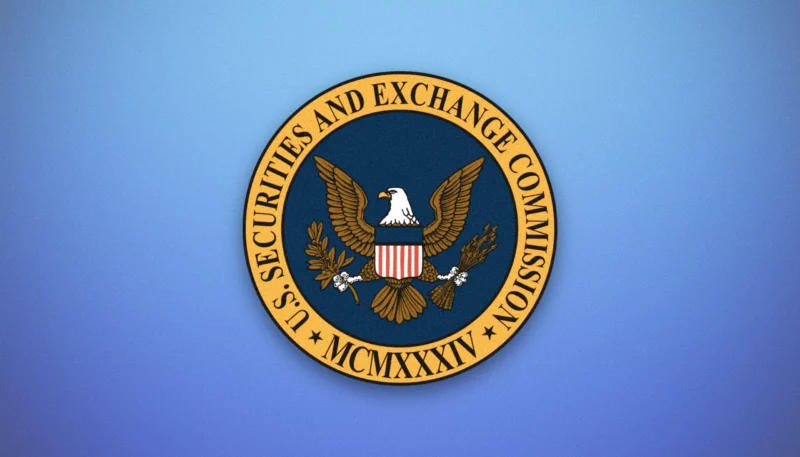In recent rule-making, the SEC, at Congress’s behest, has proposed a rule that will increase due diligence requirements for Rule 506 offerings, which are the type of securities offering most frequently used by startups for their seed and angel rounds of financing and by hedge funds and VCs. The new rule is made pursuant to Section 926 of the Dodd-Frank Act, and prohibits securities issuers from relying on Rule 506 if anyone associated with the issuer or the offering has engaged in certain “bad acts” enumerated in the rule. These bad acts include:
- Securities-related criminal convictions;
- Securities-related injunctions and court orders;
- Final orders from certain regulators, including federal banking agencies and state securities commissions, that bar the individual from association with a regulated entity, prohibit the individual from securities and banking-related business, or which are based on fraudulent conduct within the last 10 years;
- SEC disciplinary orders that revoke one’s registration as a broker-dealer or investment adviser, or otherwise limit one’s activities;
- Suspension or expulsion from a self-regulatory organization (for example a broker-dealer losing its affiliation with FINRA);
- SEC Stop Orders and Orders suspending exemptions of Regulation A offerings; and
- U.S. Postal Service false representation orders.
This prohibition on prior bad acts applies to (i) the issuer, its affiliates, predecessors, directors, officers, general partners, managing members, and beneficial owners of 10% or more of any class of the issuer’s equity securities, and to (ii) promoters and persons compensated for soliciting purchasers, such as placement agents, and their directors, officers, and managing members.
Rule 506, according to the SEC, is used in 90-95% of all private placements[1], so any change to Rule 506 will dramatically change the landscape of private securities offerings. If a company is unable to rely on Rule 506 (or any other private placement exemption), then it risks violating Federal and state securities laws which prohibit the sale of securities that are not registered unless the issuer establishes that it is entitled to an exemption from registration. A violation of this prohibition can carry significant civil or even potential criminal penalties. In addition, the issuer, its officers, directors, and owners, along with anyone involved in selling the security, like internal salespeople and outside broker-dealers, are strictly liable to the purchasers of the securities in a civil suit. Therefore, it’s important for an issuer to ensure that it is entitled to rely on Rule 506.
What happens if, unbeknownst to the issuer, one of the covered parties has engaged in one of the enumerated “bad acts?” In order to avoid potential civil and criminal penalties, or to successfully defend a lawsuit from an investor, the issuer will have to establish that it did not know, and in the exercise of reasonable care could not have known that the disqualification existed. To establish reasonable care, the issuer will have to show that it made a factual inquiry, most likely in the form of background check of parties covered by the rule. However, the rule does not provide specifics as to what that inquiry must be.
What is the practical effect of all of this? It will likely increase the legal costs associated with due diligence in connection with a private offering. It is certainly true that even without this rule, an issuer and its legal counsel should still perform due diligence on the issuer’s principals and on any outside placement agents for the offering. The anti-fraud provisions are often interpreted to require that an issuer disclose the prior bad acts of the issuer, its affiliates, and principals. However, this new rule raises the stakes significantly. To succeed on a securities fraud claim, a plaintiff generally must establish that the issuer acted recklessly or intentionally, which can be relatively difficult. If and when this new rule is put into place, the issuer will bear the burden to show that it exercised reasonable care (itself, a higher standard of conduct compared merely avoiding recklessness), and if it fails to do so, it and its principals can be subject to strict liability claims associated with selling an unregistered security. Even if an issuer is sure that no one who is affiliated with it has engaged in misconduct, its outside counsel will likely feel compelled to perform the requisite due diligence associated with compliance with this new rule, or risk a malpractice suit. Placement agents will also need to be significantly screened prior to using them (which is a good idea anyway). Finally, since the bad actor provisions, as they are currently proposed, will also include equity owners of the company, issuers will need to (i) use some kind of method of screening potential investors and (ii) restrict the transfer of their equity interests so as to ensure that bad actors do not acquire an interest in them. Failure to do so risks unwittingly becoming associated with a bad actor and losing the ability to engage in further capital-raising.
The changes to Rule 506 have not yet been finalized and may be further revised significantly. Final comments to the SEC are due July 14. However, it is unlikely that the final rule will differ much, because the core principle that Rule 506 will not be available to issuers associated with “bad actors” is derived directly from the text of the Dodd-Frank Act itself. Stay tuned.
Footnotes
[1] At least those that make use of Regulation D.
———————————–
© 2011 Alexander J. Davie — This article is for general information only. The information presented should not be construed to be formal legal advice nor the formation of a lawyer/client relationship.




